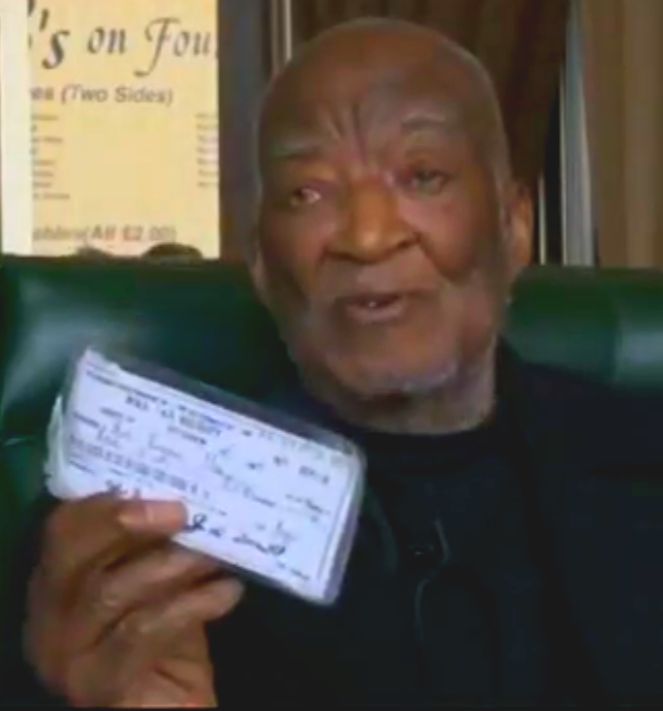The Honorable John Lewis (b. 1940 - d. 2020)John Lewis was born in Alabama in 1940. As a young man in the segregated South, he began following the work of the civil rights movement when he was just a teenager. By the time he was a college student in Nashville, he was very involved in the struggle and was arrested and jailed several times during the student-led sit-in campaigns there. One of his most famous sayings was that people needed to get into “good trouble, necessary trouble.” And he always lived by this, too. He was not afraid to be on the front lines of non-violent protest, even when it meant being met by violence. As one of the original Freedom Riders in 1961, Lewis was assaulted and imprisoned yet again. Two years later, because of the leadership and courage he showed all the time, he was elected chairman of the Student Non-Violent Coordinating Committee (SNCC). In that role, he helped to organize and he even addressed the March on Washington in 1963. He was also one of the leaders of the first (attempted) 1965 march from Selma to Montgomery, which was a peaceful protest demanding the protection of voting rights for African Americans. On that “Bloody Sunday,” John Lewis was among those attacked on the Edmund Pettus Bridge by local police and state troopers; his skull was fractured in that assault. Lewis continued to work for justice and voting rights after leaving SNCC in 1966, holding several roles in non-profits and serving in the Carter Administration. His career as an elected official began with his election to the Atlanta City Council in 1981; beginning in 1986 until his passing in 2020, John Lewis was the Representative for Georgia’s Fifth District in the U.S. Congress. His tireless advocacy there on continuing to ensure voting rights -- as well as on issues ranging from gun control to LGBT equality -- earned him the honorary title, “the conscience of the Congress.” |
|
Frederick Douglass (b. 1818 - d. 1895)Born into slavery in Maryland, Frederick Douglass became the 19th century’s most famous abolitionist writer, leader, publisher, and public speaker. A towering figure in United States history, everything about him -- from the way he carried himself to the work he did -- challenged the racist assumptions and attitudes that supported slavery. Douglass wrote three autobiographies over the course of his lifetime, each of them providing damning accounts of the abuses and cruelty of slavery. His career as an abolitionist advocate and spokesman began in 1841 when he gave a speech to the Massachusetts Anti-Slavery Society's annual convention in Nantucket. One of his most famous speeches is the 1852 “What To the Slave is the Fourth of July?” The speech includes blistering criticism of the hypocrisy of the Founding Fathers and Americans who would celebrate the national independence holiday when so many people in the land were held in bondage. But it also captures a belief that was inherent in Douglass’s lifelong insistence on voting rights for Black people in the United States. Douglass believed that although the nation’s Constitution was flawed in its interpretation and application, the document itself did, indeed, provide the basis for a just and inclusive society. Given that belief, voting rights for Black people were essential, and he called tirelessly for them. Douglass was also a major supporter of the inclusion of Black soldiers to fight for the Union in the Civil War. He participated in recruitment efforts of Black soldiers, and two of his sons served in the Union army. During the Reconstruction period and afterwards, Douglass was appointed to a number of government positions. He died in Washington, D.C. at the age of 77. |
|
Mary Church Terrell (b. 1863 - d. 1954)Born the year of the Emancipation Proclamation, Mary Church Terrell was a renowned African American educator, lecturer, suffragist, and civil rights activist. In Washington, D.C. in 1895, she became the first Black woman appointed to the Board of Education of a major city. Beginning the following year, she served as the founding president of the National Association of Colored Women, an organization dedicated to strengthening solidarity among Black women and to fighting racial discrminiation -- values embodied in its motto that Terrell coined, “Lifting as we climb.” Long a supporter of voting rights for all women and a friend of famed suffragist Susan B. Anthony, Mary Church Terrell was an active and prominent member of the National American Woman Suffrage Association; she was one of very few Black women who were invited to attend the organization’s meetings, and in a famous address to the group in 1898, she urged the group to recognize both the struggles and the accomplishments of Black women, in the face of the oppression they faced because of their race as well as their gender. Terrell also worked with Ida B. Wells-Barnett on anti-lynching campaigns, and these two leaders were the only women included as charter members at the founding of the National Association for the Advancement of Colored People (NAACP) in 1909. She continued her work as an educator and advocate throughout her life; in 1950, at the age of 86, she began what would be a successful campaign to end racial segregation at restaurants in Washington, D.C. Mary Church Terrell died in 1954, but not before she saw the Supreme Court hand down its landmark decision in Brown v. Board of Education, ruling that segregation in public schools was unconstitutional. |

Library of Congress |
Bayard Rustin (b. 1912 - d. 1987)Though his name is not as widely known as many others’ from the civil rights movement, Bayard Rustin was an essential architect of the movement’s strategy and organizing. His upbringing by his grandparents shaped the advocate and activist he would become: he learned nonviolence through his family’s Quakerism, and his grandmother’s involvement in the NAACP brought early civil rights luminaries including W.E.B. Du Bois and Mary McLeod Bethune to the Rustin home when Bayard was growing up. In 1941, he was tapped by long-time trade unionist and civil rights organizer A. Philip Randolph to be the youth organizer for the original March on Washington that year. Along with dedicated Gandhian nonviolence activists James Farmer, Homer Jack, and others, Rustin helped to found the Congress of Racial Equality (CORE) the following year. Along with the Student Nonviolent Coordinating Committee (SNCC) and the Southern Christian Leadership Conference (SCLC; whose founding Rustin proposed to Dr. Martin Luther King, Jr. in 1956), CORE would emerge as one of the leading civil rights organizations as the movement gained steam in the 1950s and 1960s. During World War II, Bayard Rustin spent more than two years in prison as a conscientious objector. After the war, Rustin continued his organizing work with CORE and became a key advisor to Dr. King on nonviolence and nonviolent strategy, including being called to Montgomery, Alabama in 1955 to advise on the bus boycott. But the most famous event Rustin organized was the 1963 March on Washington for Jobs and Freedom, where Dr. King gave his “I Have a Dream Speech” before almost 200,000 who came to the nation’s capital. The fact that most people don’t know about Rustin’s work that made this event happen reveals how deliberately he remained, and was kept, behind the scenes. Bayard Rustin was a gay man who faced anti-gay discrimination, and many feared that his homosexuality could be used to discredit or undermine the movement. But his place in its leadership was both essential and transformative, if often unheralded. |
|
Fannie Lou Hamer (b. 1917- d. 1977)Fannie Lou Hamer was the daughter of sharecroppers in the Mississippi delta, and she joined her family working in the cotton fields at the age of six. She attended school for several years, but by the time she was 12, had to work full time in the fields to help support her family. After she got married, she and her husband continued to work as sharecroppers; as the only worker who could read and write, Fannie Lou Hamer had the less physically grueling job of plantation timekeeper. In 1961, she got involved with the Student Nonviolent Coordinating Committee (SNCC) after attending a meeting with organizer James Forman. The following year she led a group of Black people to the Sunflower County seat of Indianola to register to vote. Only two of them (including Hamer) were permitted to even attempt to register, but they both “failed” the literacy test they were given. By the time she got back to the plantation, its owner had heard about her attempt to register; he fired her and ordered her off the land. Several years later, Hamer helped found the MIssissippi Freedom Democratic Party (MFDP), which sought to challenge the pro-segregation Democratic Party in the state. Hamer ran for Congress as a MFDP candidate in 1964. Though she lost that race, she soon gained national prominence when she spoke before the Credentialing Committee of that year’s Democratic National Convention, seeking to persuade it to seat the MFDP delegates as those representing Mississippi at the convention, rather than the all-white delegation. The committee caved to pressure from President Lyndon B. Johnson and Vice President Hubert Humphrey and did not seat the MFDP delegates. For the rest of the 1960s and until her death in 1977, Hamer continued to work both nationally and locally in Mississippi for voting rights and on a range of anti-poverty programs. At her funeral, civil rights leader and U.S. Ambassador to the United Nations, Andrew Young -- who was with Dr. Martin Luther King Jr, when the preacher was assassinated -- said of Fannie Lou Hamer: "None of us would be where we are now had she not been there then." |
|
President Lyndon B. Johnson (b. 1908 - d. 1973)A Texas native, Lyndon Baines Johnson’s political career began with this election to the U.S. House of Representatives in 1937. He went on to serve as a senator from the state and held key leadership roles in the Senate. Chosen as John F. Kennedy’s running mate for the election of 1960, he became president following Kennedy’s assassination in 1963. Johnson is often remembered as a champion of civil rights and voting rights, as well as other major policy initiatives that took shape during his administration to target racial discrimination, racial violence, and poverty. He signed both the Civil Rights Act of 1964 and the Voting Rights Act of 1965; his speech before Congress calling on Americans to support voting rights for Black people is considered one of his greatest. He said, in part: “As a man whose roots go deeply into Southern soil I know how agonizing racial feelings are. I know how difficult it is to reshape the attitudes and the structure of our society. But a century has passed, more than a hundred years, since the Negro was freed. And he is not fully free tonight. . . The time of justice has now come. . . . And when it does [come], I think that day will brighten the lives of every American.” But along with championing civil rights, Johnson was also known for racist comments and acts. As journalist Adam Serwer has noted: “Maybe when Johnson said ‘it is not just Negroes but all of us, who must overcome the crippling legacy of bigotry,’ he really meant all of us, including himself.” This reality of the former president helps to illustrate both the progress and the contradictions that have marked the United States’s continuing struggle to provide real “liberty and justice for all.” |
 Library of Congress Library of Congress |
The Honorable Ruth Bader Ginsburg (b. 1933 - d. 2020)Ruth Bader Ginsburg was the second woman appointed to the United States Supreme Court, where she served for 27 years following an already distinguished legal career. Prior to being named to the high court, she was a judge on the U.S. Court of Appeals for the District of Columbia for 13 years. She had previously been a law professor at Rutgers and Columbia universities. Ginsburg was a trailblazer in the area of challenging gender discrimination in the law. She co-founded and then led the Women’s Rights Project of the American Civil Liberties Union (ACLU). During her time in that role, she argued six times before the Supreme Court; she won five of those cases. As a member of the Supreme Court Justice Ginsburg came to be known for her forceful dissenting opinions, some of which she read aloud from the bench, which is a way for justices to signal a particularly strong disagreement. One of her most famous dissents was the one she wrote in the case of Shelby County, Alabama v. Holder in 2013. The majority had voted to strike down as unconstitutional key parts of the Voting Rights Act of 1965, in part, because they said conditions had changed so much and so favorably since the law went into effect. Ginsburg famously pointed out that the reason circumstances for Black voters had improved was precisely because of the law the Court had just voted to weaken. Justice Ginsburg survived five bouts with cancer prior to her death in 2020. She never missed a day at the court, even as she went through surgeries and chemotherapy. Her work ethic, tenacity in life, and tough workouts at the age of 80, not to mention her fights for justice, helped earn her the nickname Notorious R.B.G., which inspired a great deal of merchandising (she said she had a collection of T-shirts she gave as gifts), as well as generations of young girls and women. |
 Library of Congress Library of Congress |
Nims Gay (b. 1923 - )Nims Gay, who appears in the “I Have A Right To Vote” video holding his poll tax receipt, was born in Calhoun County, Alabama in 1923. He grew up and spent most of his life in Birmingham. A natural musician, he led the choir of the Alabama Christian Movement for Human Rights (ACMHR) in the 1950s and became the first Black announcer of the Birmingham radio station WJLD. Gay was a member of the National Association for the Advancement of Colored People (NAACP) and of the Southern Christian Leadership Conference (SCLC) and was extremely active in the civil rights movement in and around Birmngham. In an interview on the occasion of the 50th anniversary of “Bloody Sunday” in Selma, Alabama -- when peaceful voting rights marchers were attacked and beaten by Alabama state troopers and local police -- Gay reiterated the importance of securing the right to vote. “A voteless people is a hopeless people,” he said. |
|
https://blogs.loc.gov/loc/2020/07/remembering-john-lewis-the-power-of-good-trouble/


 Library of Congress
Library of Congress National Archives and Records Administration
National Archives and Records Administration Library of Congress
Library of Congress Library of Congress
Library of Congress Voice of America
Voice of America